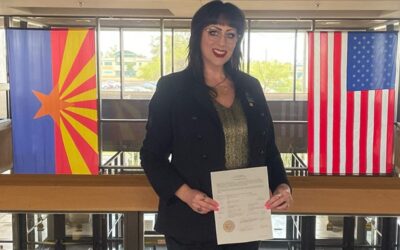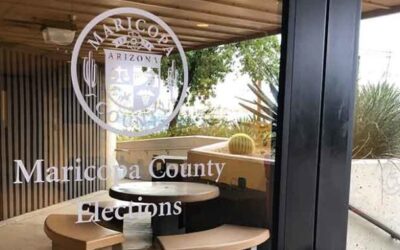UPDATE: Senate Bill 1452 passed out of the Senate Education Committee along party lines on a 5-3 vote on Tuesday.
BREAKING: Arizona Senate Education Committee just passed a bill to expand funding students instead of systems.
— Corey A. DeAngelis (@DeAngelisCorey) February 3, 2021
PHOENIX – Prominent leaders from the valley’s Black Community gathered at the state capitol today in a call-for-action to support minority children when it comes to education in the wake of the pandemic.
They’re supporting Senate Bill 1452, introduced by Senator Paul Boyer, which would expand the state’s Empowerment Scholarship Account program to include low-income students.
“The time for equal opportunity in education is now,” Boyer said before today’s committee hearing on the issue.
A recent study shows that low-income and minority students nationwide are up to 5 months behind their peers and could be as far as 16 months behind academically by the end of the school year.
Pastor Drew Anderson, from the Legacy Christian Center in South Phoenix, led today’s group of SB 1452 supporters. Anderson, a former NFL player, says his success in life would never have come about had it not been for the educational opportunities he was given growing up in Chicago.
Anderson is attempting to unite party lines, saying, “We are in a battle not of Republicans, not of Democrats, but we are in a battle for young souls. As a registered democrat I support this bill, as a registered democrat I support anybody who supports making sure all minority children are given an opportunity to be properly educated.”
Since the pandemic began and schools across America were closed, one report puts the number of missing children, students who have not been getting any type of schooling, mostly from low-income families, at three million children. The challenges to low income families are many including poor to no internet access for virtual learning. Anderson tells of seeing families in McDonalds restaurants so their children could have access to their school work.
In addition, a survey from the Urban Institute found that 75 percent of low-income parents were unable to work from home. Which in many families means no one is available to help these students with distance-learning. Aggravating that statistic is Arizona’s ranking of 14th in the nation for single parent households.
In an effort off-set these disadvantages, Black Leaders believe lawmakers need to take action through the expansion of the existing ESA program. The proposal introduced today would help low income parents overcome disadvantages from the digital divide to unsupervised distance learning.
The measure under consideration would make funding available for a parent to pay for tutoring, educational materials, homeschool and micro-schools or money for private schools.
Janelle Wood, with the Black Mothers Forums in Arizona says she’s fought the battle for supportive and safe learning environments for “our sons and daughters”. Speaking out today, she said, “Our children deserve and opportunity, their parents, their mothers, deserve an opportunity to find a place where those children are safe and supported.”
The group contends letting minority students fall behind will create issues for the state for years to come. Right now, by expanding the established ESA program, the state’s Black Leaders say Arizona’s legislature has the option to change the course of what could be an educational disaster. Hoping to offset what is known as the prison pipeline because of a lack of education, Reginald Steele, a Pastor from Kingdom in the Valley said a better use of our monies would be investing in education, especially the school choice option.
“I would rather see us building more Penn States then Penitentiaries,” Steele said.
Senate Bill 1452 would give parents up to $7000 in ESA funds to spend on their children’s education, and cut the approval and waiting time for parents to 30 days instead of 100.
“School Choice is no longer something that can be on the back-burner,” Drew says, “but it’s actually the Civil Rights Movement of this era.”








